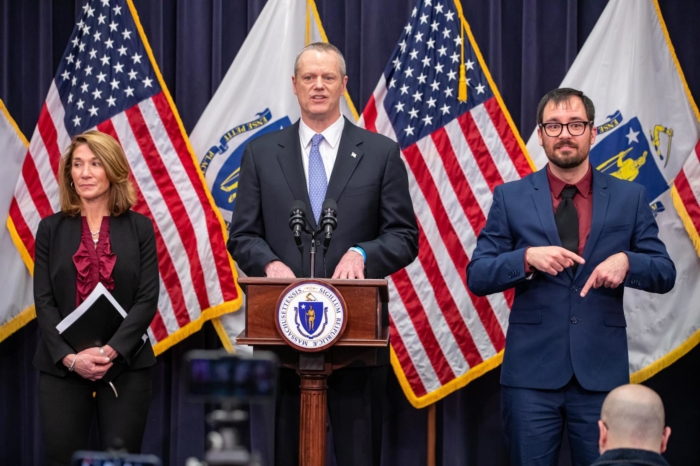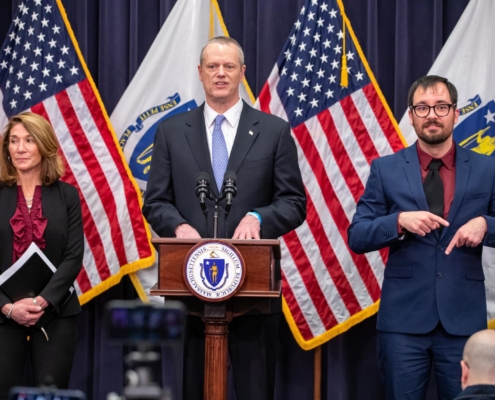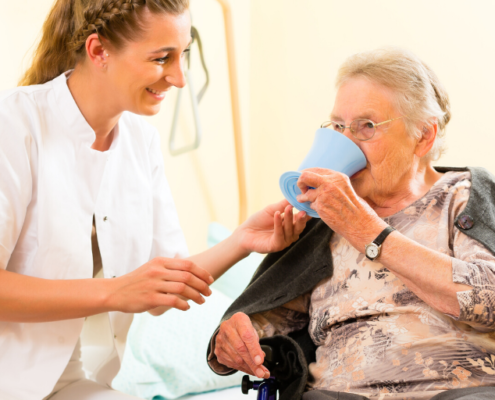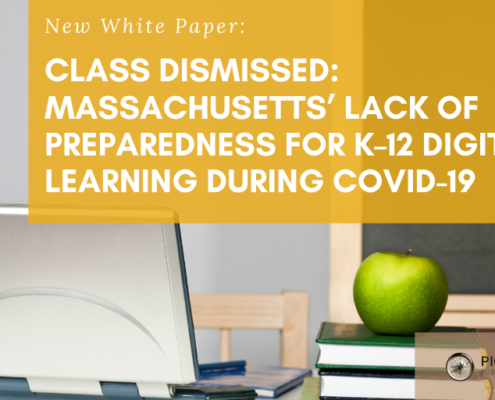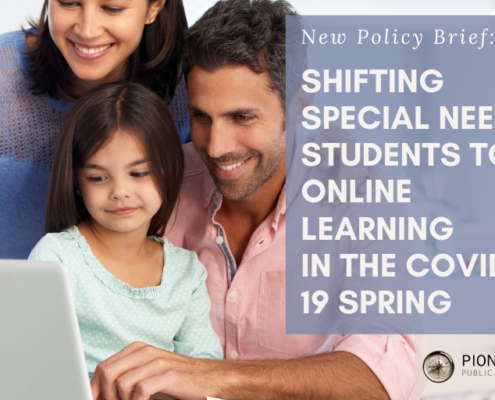Pioneer Institute Statement on Governor Baker’s New COVID Restrictions
In response to a significant uptick in COVID infections in Massachusetts, Gov. Charlie Baker announced new executive orders related to the state’s reopening plan that will go into effect on Nov. 6. The orders include the closure of certain businesses by 9:30 p.m., a limit on the size of gatherings at private residences to no more than 10 people, and a requirement for face coverings in open outdoor spaces, regardless of whether social distancing is practical. Also included is a stay-at-home advisory, from 10 p.m. through 5 a.m., with certain exceptions such as work, groceries, and critical errands.
The data do not support the Governor’s new restrictions on restaurants and the requirement that masks be worn even outside when not within 6 feet of others. According to a recent state analysis, fewer than two percent of cluster infections (infections involving two or more cases) have occurred in restaurants in the last month. Improving compliance with COVID-19 protocols is a more effective means of reducing the transmission rate to an even smaller level inside restaurants.
The restaurant restriction will cause real and unneeded economic damage to already hard-pressed restaurants, who have invested in all manner of protective gear and plexiglass dividers, and who are struggling to keep their employees on the job.
The scientific consensus is that there is minimal transmission risk outdoors when social distancing is practiced (see the CDC recommendation on masks). Many Massachusetts residents have taken up walking and other forms of outdoor exercise, to breathe fresh air deep into their lungs to improve their overall health. Breathing though a mask thwarts that and is potentially counterproductive in wide, open environments.
The Governor’s orders also create an enforcement problem. The enforcers, state and local boards of health, and state and local police are not omnipresent, so they cannot possibly monitor adherence to these blanket directives. As a result, enforcement will necessarily rely on neighbors to report on each other through the state’s Coronavirus hotline. This situation creates a culture of suspicion, arbitrary enforcement, different sets of penalties depending on location (since the fines are left up to municipalities) – setting the stage for additional stress and situations where neighbors are pitted against one another.
Orders that place a limit on gatherings inside personal residences may run against the grain of the individual freedoms that we hold dear. Yet, given that the aforementioned state analysis of new cluster infections in the past month found that over 83 percent were cases of in-home infection, the data supports this restriction on gathering size as a rational response to the pandemic. That is especially true if this is a temporary action in anticipation of the arrival of effective vaccines. Two things the Governor must change: The order must distinguish guests from residents in a household, and the fines of $500 (or more) are unreasonable.
Should Massachusetts residents experience violations of their civil liberties, we urge them to report them to the Respect My Rights hotline. Your experiences will help us gather important data that we can use to keep elected officials informed and to apply brakes on institutions that have exceeded their constitutional powers.
Mission
Pioneer Institute develops and communicates dynamic ideas that advance prosperity and a vibrant civic life in Massachusetts and beyond.
Vision
Success for Pioneer is when the citizens of our state and nation prosper and our society thrives because we enjoy world-class options in education, healthcare, transportation and economic opportunity, and when our government is limited, accountable and transparent.
Values
Pioneer believes that America is at its best when our citizenry is well-educated, committed to liberty, personal responsibility, and free enterprise, and both willing and able to test their beliefs based on facts and the free exchange of ideas.
Get Our COVID-19 News, Tips & Resources!
Related Posts

